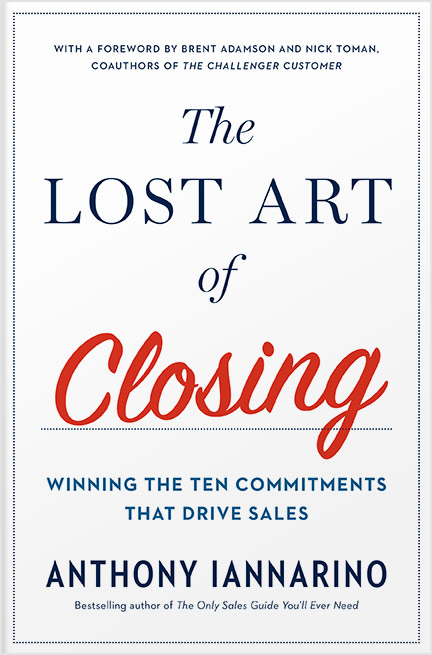The Gist:
- In B2B sales, especially those that require complex decisions, consensus is necessary.
- Winning big deals means finding a way to help your clients gain the consensus of their organization.
- Learning how consensus works is worth your time and attention.

34 Lessons We’ve Learned About Building Consensus
- Deals die due to a lack of consensus, even if the problem is compelling, and even if you have the right solution. How soon should you start the process of building consensus?
- Executive leaders don’t like to overrule their teams’ decisions because they want them to execute. In many deals, though, you still need an executive leader’s support.
- The more a stakeholder tries to control an initiative, the more certain it is doomed to fail due to a lack of support from other people in the organization.
- We tend to underestimate how much of sales is really a change management problem. This is especially true when the change will impact different groups.
- A stakeholder who says nothing in a meeting with you in the room will say a lot after you leave. None of it is good.
- Many of your clients will not recognize the need to build consensus among other areas of their business. Most of them will not have a good understanding as to who they should invite into the process.
- The reason most stakeholders try to prevent other stakeholders from engaging in the process is that they believe they will try to take control or change the solution they want.
- Someone with authority still needs to sponsor your client’s initiative, even though that person is not “the authority.” They do sign the check and approve the solution.
- Most salespeople have never been provided with a process that will allow them to help their contacts get the support they need from their peers.
- There are always multiple paths to consensus. The more paths you can identify, the better your chances of finding one that allows you to succeed.
- The most valuable person to help you understand what a stakeholder wants or needs is another stakeholder. You tend to learn quite a bit about the people you work with every day.
- Your experience includes knowledge of the people and roles that are generally necessary for an effective decision. You can use that knowledge to help your contacts invite them into the process.
- The absence of a person who was previously engaged in the conversation may indicate that they are withholding their support. It might also mean they are refusing to support the initiative at all.
- Influence weighs more than authority in deals that require consensus.
- Oftentimes, a subject matter expert can dominate a decision because of their domain knowledge. You may need someone on your team to help you have that discussion.
- You may have to help your contacts understand that consensus doesn’t require a unanimous decision.
- When stakeholders refuse to support a change, it may be because they are harmed by the decision. The more you mitigate the harm, the better your odds of winning.
- The incentives that people receive for supporting (or opposing) a change are invisible to you, even though they are always lurking in the background.
- A group that doesn’t seem to have any real conflicts can still decide to do nothing.
- One of the most important factors in getting consensus is the ability to track your support and your opposition. The tool matters less than your methodology.
- All organizations of any size have internal politics. Different organizations manage them better or worse than others.
- Managing consensus is easier when you have a team of people discussing the process and the players.
- When some groups reject an idea due to a lack of consensus, they rarely revisit it in the next couple of years. You should do everything in your power to help them get their initiative across the line.
- Sometimes you can see a power struggle and other times you can’t. There are always people who are trying to better their position.
- You may benefit from asking to have meetings without some stakeholders.
- The people you don’t spend time with may decide to oppose you and your solution.
- Any person that wasn’t included in the process to determine the right solution should not be expected to support it.
- You cannot expect to go any faster than your stakeholders.
- Assume that someone has been left out and act accordingly.
- The chemistry in a meeting depends on the mix of stakeholders in the room. Expect the chemistry and the candor to vary by group, and pay careful attention to what’s different.
- A dominant personality may not be the person who has the greatest influence on their peers. Assume it is otherwise.
- No matter the outcome, some will be unhappy with the result.
- Once you start to execute your solution, the people responsible for working with you will inflict massive damage if you left them out of the process. But by then, it’s too late.
- There is still much to learn and study when it comes to group dynamics and decisions.

Do Good Work:
- Are you aware of what your contacts need from you as it pertains to consensus?
- What challenges prevent your contacts from being able to gain a general agreement to move forward with change?
- What have you learned from deals you lost due to a lack of consensus?

Essential Reading!
Get my 2nd book: The Lost Art of Closing
"In The Lost Art of Closing, Anthony proves that the final commitment can actually be one of the easiest parts of the sales process—if you’ve set it up properly with other commitments that have to happen long before the close. The key is to lead customers through a series of necessary steps designed to prevent a purchase stall."
Buy Now









.jpg?width=768&height=994&name=salescall-planner-ebook-v3-1-cover%20(1).jpg)


